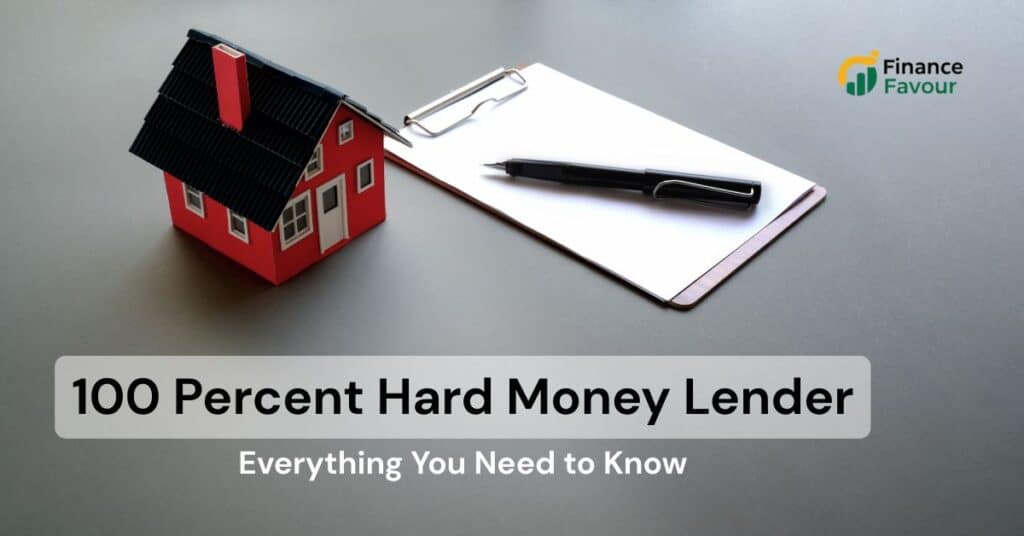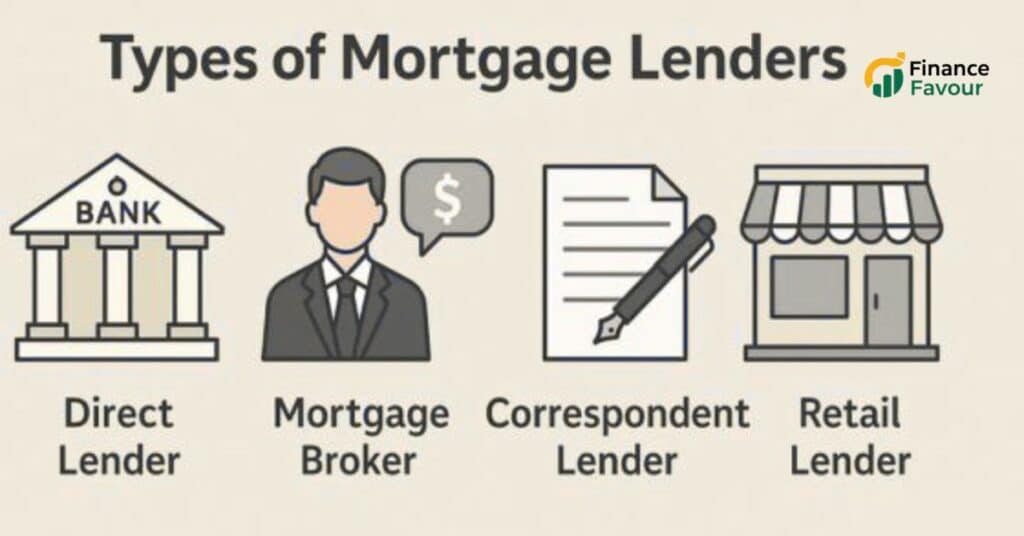If you’re diving into the world of real estate investing or seeking an alternative funding route, chances are you’ve come across the term “100 percent hard money lender.” While it may sound like a financial unicorn, this type of lending is very real and incredibly useful if you know what you’re doing. Whether you’re flipping homes, investing in rental properties, or just need quick cash, understanding the ins and outs of 100% hard money loans could be your golden ticket.
But here’s the thing hard money isn’t your typical loan from a bank or credit union. This is an entirely different ball game with its own rules, advantages, and risks. So, before you dive headfirst into the hard money pool, it’s crucial to know exactly what you’re signing up for.
Let’s break down everything from the basics of hard money lending to how 100 percent financing works, who should consider it, and what kind of benefits and risks come with the territory.
Introduction to Hard Money Lending
What is a Hard Money Loan?
A hard money loan is a type of short-term financing typically used by real estate investors. Unlike traditional loans that focus heavily on the borrower’s credit score, income history, and debt-to-income ratio, hard money loans are asset-based. That means the lender cares more about the property being used as collateral than your creditworthiness.
Here’s the magic behind it: If the property you’re buying is a good deal with solid resale or rental value, a hard money lender might be willing to back your investment even if your credit report is a horror story.
These loans are usually issued by private investors or companies rather than banks. That gives them the flexibility to offer terms that make sense for fast-moving real estate transactions. They often have higher interest rates (think 8% to 15% or more), shorter durations (six months to three years), and lower documentation requirements.
The Origins and Evolution of Hard Money Lending
Hard money lending has roots dating back to times when traditional financing options were limited. Initially, it was often associated with last-resort borrowing. Over time, however, it’s evolved into a legitimate and strategic funding method—especially in the real estate world.
The 2008 financial crisis was a turning point. With banks tightening their lending standards, investors turned to hard money lenders to keep projects alive. This boom brought structure, regulation, and even some professional polish to what was once a “Wild West” of lending.
Today, many hard money lenders are licensed businesses offering sophisticated services and tailored financial products. They serve a growing community of real estate professionals, developers, and even regular folks trying to build wealth through property investment.
Differences Between Hard Money Loans and Traditional Loans
Comparing hard money loans to traditional loans is like comparing a sports car to a minivan they both get you from point A to point B, but in very different ways.
Here are some key differences:
- Approval Speed: Hard money loans can be approved in days, while banks might take weeks or months.
- Documentation: Traditional loans require tax returns, pay stubs, and a deep credit check. Hard money loans mainly need property details and a decent plan.
- Loan Terms: Banks offer lower interest rates and longer terms; hard money loans are short-term and come with higher costs.
- Flexibility: Hard money lenders can structure deals in creative ways, while banks stick to rigid formulas.
If you’re in a time crunch or dealing with unconventional circumstances, hard money might be the better fit even if it costs more.
Understanding 100 Percent Hard Money Lending
What Does “100 Percent” Mean in Hard Money Lending?
“100 percent” in the context of hard money loans means the lender is willing to finance the entire purchase price of the property. That’s right—no down payment from your pocket. This is a big deal in real estate investing, where putting 20% to 30% down is the norm, even with private lenders.
But don’t get too excited just yet. Lenders offering 100% hard money loans typically have strict conditions. They need to see substantial equity or profit potential in the property. In most cases, this means you’re buying at a deep discount, usually well below the market value.
For example, if a property’s after-repair value (ARV) is $200,000 and you can acquire it for $100,000, a lender might see enough margin to offer 100% financing. The key here is leverage you use someone else’s money to make money, but only if the numbers make sense for everyone involved.
How 100% Financing Works in Real Estate Investing
100% hard money financing is like a secret weapon for savvy real estate investors. It allows you to acquire property without putting a single dollar down from your own funds. But here’s the catch: not every deal qualifies for this type of financing. Lenders are only willing to offer 100% financing if the deal is a slam dunk.
So how does it actually work? Let’s break it down:
- You Find a Great Deal: This could be a distressed property, a foreclosure, or something you’re getting well below market value.
- You Present the ARV and Purchase Price: The lender will look at the After Repair Value (ARV), your purchase price, and your renovation plan.
- They Analyze Risk vs Reward: If there’s a strong enough equity cushion say the ARV is $200,000 and you’re buying and fixing it for $120,000 total they might say, “Sure, we’ll fund 100%.”
- You Sign a Loan Agreement: These often include higher interest rates, short terms (usually 6–12 months), and exit plans (like selling or refinancing).
- Funds Are Disbursed: Often in two stages purchase price at closing, and rehab funds in draws based on work completed.
This setup is ideal for flippers who can buy low, renovate quickly, and sell high. It minimizes your capital outlay, which means you can take on multiple projects at once. But remember this leverage cuts both ways. If your estimates are off or the market shifts, you’re still on the hook for repayment.
Many investors use 100% hard money loans to build up momentum, then refinance with conventional loans or cash out after a sale to fund future deals. Used wisely, it’s a powerful tool in your real estate arsenal.
Typical Terms and Conditions of 100% Hard Money Loans
Before you sign the dotted line on a 100% hard money loan, it’s crucial to understand the fine print. These loans come with very specific terms and they’re often much stricter than traditional financing. That’s the trade-off for not needing a down payment.
Here are the standard features you can expect:
- Interest Rates: Typically between 10% and 15%, sometimes higher.
- Loan Duration: Short-term only usually 6 months to 1 year.
- Loan-to-Value (LTV) or ARV Ratios: These loans may finance up to 70–75% of ARV, not just the purchase price. If you’re getting 100% of the purchase price, that’s only possible because your total cost is significantly below the ARV.
- Points and Fees: Expect to pay 2–5 points (a point is 1% of the loan amount) upfront. There may also be underwriting, legal, or admin fees.
- Draw Schedules for Rehab: Funds for renovations are typically released in stages. You must show progress with receipts, photos, or inspections.
- Exit Strategy Requirement: Lenders want to know how you’ll repay the loan sell, refinance, or something else.
- Personal Guarantee: Even if the property is collateral, many lenders require you to personally guarantee repayment. That means your other assets may be at risk if you default.
- Insurance and Permits: You’ll often be required to carry builder’s risk insurance and show proof of required permits before rehab funds are disbursed.
Reading the loan agreement carefully is non-negotiable. These loans are expensive and unforgiving if things go south. But for experienced investors, the benefits often outweigh the costs especially if they can turn a property around quickly and profitably.
Who Should Consider a 100% Hard Money Loan?
Real Estate Investors and House Flippers
This type of financing is practically tailor-made for real estate investors and house flippers. Why? Because in this business, cash is king and time is money. With a 100% hard money loan, you can buy, fix, and flip properties fast without draining your own bank account.
Let’s say you’re a flipper eyeing a fixer-upper for $80,000. You estimate $20,000 in renovations and believe the property will sell for $150,000. A lender might fund the entire $100,000 (purchase + rehab), leaving you to focus solely on the renovation and sale. That’s a win, especially if you’ve got multiple deals in the pipeline.
Hard money loans are particularly helpful in competitive markets where great deals don’t stay on the shelf for long. Investors can move fast, lock in properties, and start renovations without waiting for traditional lenders to grind through paperwork.
This type of loan is also excellent for:
- Wholesalers who want to close and resell quickly
- Buy-and-hold investors using BRRRR (Buy, Rehab, Rent, Refinance, Repeat)
- Seasoned pros scaling up their portfolio
However, it’s not for newbies without a solid plan. The speed and cost of these loans demand precision flippers must know their numbers, have good contractors, and execute fast.
Borrowers with Poor Credit or No Credit History
One of the biggest benefits of hard money lending is that it often ignores your credit score. That’s a game-changer for people who’ve been rejected by banks due to poor or nonexistent credit histories.
Traditional lenders put immense weight on credit scores, employment verification, income statements, and tax returns. If you’ve been through bankruptcy, foreclosure, or even just a rough patch financially, you could be out of luck.
Hard money lenders? Not so much. They’re more interested in:
- The equity in the deal
- Your real estate experience
- Your exit strategy
If you’re offering a property at 60% of its ARV, that equity speaks louder than your FICO score. For this reason, hard money loans are one of the only viable funding options for some borrowers.
That said, don’t mistake flexibility for charity. These lenders are still running a business. They’ll build risk into the loan with higher interest rates, points, and strict terms. But if you’ve got a solid deal and a plan, poor credit won’t stop you here.
Entrepreneurs Seeking Quick Capital
It’s not just real estate folks who can benefit entrepreneurs often turn to 100% hard money loans when they need fast, no-hassle funding. Whether you’re flipping houses, developing property, or need capital for a time-sensitive opportunity, speed matters. That’s where hard money shines.
Imagine a business owner who spots a vacant commercial property in a prime location. They need $300,000 to purchase and renovate it quickly before a competitor swoops in. A traditional loan would take 60–90 days far too long. A hard money lender can fund the deal in a week or less.
The key advantage for entrepreneurs is flexibility. You can often structure deals in unconventional ways. Want to cross-collateralize other properties? Use projected business income to help justify the loan? Many hard money lenders will work with you creatively, as long as the deal makes sense.
Hard money is particularly useful for:
- Property developers launching new projects
- Small businesses expanding into new locations
- Business owners with inconsistent income or tax write-offs that hurt loan approval
It’s not cheap capital but it can be fast, efficient, and game-changing when used wisely.
Benefits of 100% Hard Money Loans
No Down Payment Required
One of the most attractive features of a 100% hard money loan is that you don’t need to come up with a down payment. For real estate investors and entrepreneurs, this is a massive win. Traditional lenders usually demand 20%–30% upfront, which can tie up your capital and limit the number of deals you can pursue. But with 100% financing, that money stays in your pocket or better yet, gets reinvested in another opportunity.
Why is this such a big deal?
- Preserve Cash Flow: Instead of tying up $30,000 to $50,000 as a down payment, you can use that cash for renovations, marketing, or even your next project.
- Expand Faster: With zero down, you can take on multiple projects simultaneously, scaling your real estate or business portfolio quickly.
- Low Barrier to Entry: If you’re just getting started and don’t have a large amount of capital saved, this gives you a chance to jump in and prove yourself.
Of course, this doesn’t mean it’s free money. Lenders still want assurance they’ll get paid back. That means the property you’re purchasing must have solid potential. Usually, 100% financing is only available when you’re buying far below market value. Lenders want a safety cushion in case things don’t go as planned.
Still, for those who can find great deals and move fast, the no-down-payment feature of these loans can be the ultimate leverage tool. You keep your cash, minimize risk, and maximize your return on investment.
Speed and Simplicity in the Approval Process
If you’ve ever applied for a traditional mortgage, you know how tedious and frustrating the process can be. Tons of paperwork, endless phone calls, and long wait times are all part of the game. But with a hard money lender, things move lightning-fast especially if you’re working with a reputable one.
Why is the process so much faster?
- No Bureaucracy: Hard money lenders aren’t banks. They don’t need five layers of approval or a committee meeting to decide if you qualify.
- Asset-Based Focus: They care more about the deal than your credit history. That means less time digging into your financials and more time closing deals.
- Direct Communication: You’ll often work directly with decision-makers who can give you a yes or no quickly.
Most borrowers get pre-approved within 24 to 48 hours and close in less than a week. That’s a dream for anyone in a competitive real estate market, where every hour counts.
Simplicity is another major bonus. There’s less documentation, fewer hoops to jump through, and a straightforward process from start to finish. You present the property details, show the numbers make sense, and you’re off to the races.
This speed and simplicity make 100% hard money loans especially attractive for:
- Investors chasing hot deals
- Business owners in need of urgent capital
- People looking to move quickly without red tape
Bottom line: time is money, and hard money lenders respect that.
Flexibility in Loan Structuring
Another massive perk of 100% hard money loans is how flexible they are. Unlike traditional loans, which are bound by strict underwriting guidelines, hard money lenders have much more freedom in how they structure deals.
Need a custom payment schedule? Want to roll renovation costs into the loan? Looking to use another property as collateral? A hard money lender might say yes where a bank would say no.
Here are some of the flexible options you may encounter:
- Interest-Only Payments: Some lenders allow you to pay just the interest during the loan term, with a balloon payment at the end. This can ease cash flow during renovations.
- Draw Schedules for Rehab: Renovation funds can be disbursed in stages, helping you stay on track without putting up your own cash.
- Cross-Collateralization: If you own other properties, you can sometimes use them as additional security to sweeten the deal.
- Creative Exit Strategies: Whether you’re planning to refinance, sell, or do a lease-option, hard money lenders can tailor the loan to match your strategy.
This kind of flexibility is perfect for investors juggling multiple projects or working on complex deals. It allows you to customize financing in ways that maximize profits and minimize risk.
Remember, hard money lenders are in the business of saying “yes” but only if the numbers make sense. If you come in with a solid deal and a clear plan, many will bend over backward to make it work.
Risks and Drawbacks of 100% Hard Money Lending
Higher Interest Rates and Fees
There’s no sugarcoating it hard money loans aren’t cheap. You’re paying for speed, convenience, and flexibility, and that premium shows up in the form of higher interest rates and fees.
Typical hard money loan costs include:
- Interest Rates: Ranging from 10% to 18%, depending on the deal and the lender.
- Points: Upfront fees typically between 2 and 5 percent of the loan amount.
- Loan Servicing Fees: Monthly fees just for managing the loan.
- Processing and Underwriting Costs: These can vary widely but often add hundreds or even thousands to your upfront costs.
If you’re not careful, those fees can eat into your profit margin quickly. For example, on a $100,000 loan at 12% interest with 3 points, you’re paying $3,000 upfront plus $1,000 a month in interest. That adds up fast if your project gets delayed.
It’s essential to factor in every cost when calculating your ROI. A deal that looks great on paper can quickly become a money pit if you underestimate the costs of financing.
Still, for experienced investors with strong exit strategies, the cost of a hard money loan is just another line item one that’s often worth paying for the opportunity it creates.
Short Repayment Periods
Another significant drawback of 100% hard money loans is the short repayment window. Most hard money loans are designed to be paid off quickly often in six months to one year. That’s a tight timeline, especially for complex rehab projects or slow-moving markets.
Why such short terms?
- Lender Risk: Lenders want their capital back quickly so they can redeploy it into other deals.
- Investment Nature: These loans are meant for flips and fast deals, not long-term holds.
For borrowers, this creates pressure. You need a rock-solid plan for how you’ll repay the loan. Will you sell the property? Refinance into a traditional mortgage? Bring in a partner?
Delays in permitting, contractor issues, or market slowdowns can all throw a wrench into your timeline. If you can’t pay back the loan when it’s due, you could face penalties or worse, foreclosure.
That’s why it’s crucial to:
- Build extra time into your project timeline
- Have backup funding options in place
- Communicate proactively with your lender if delays arise
Short terms make hard money loans a tool for the experienced. If you’re just starting out, make sure you have the bandwidth and know-how to move fast.
Potential for Foreclosure
One of the biggest risks of using 100% hard money loans is the very real potential for foreclosure. Since these loans are typically secured by the property itself, failure to repay means the lender can legally seize your asset and they often will. Unlike traditional banks that may work with you to find alternatives, hard money lenders are in the business of moving quickly and decisively.
Here’s why foreclosure risk is so high with hard money:
- Short Timelines: The loan might only be for 6 to 12 months. If you can’t sell or refinance in time, you’re in default.
- High Monthly Payments: Interest-only loans might seem affordable, but even those monthly payments can add up. Miss one or two, and the lender can start the foreclosure process.
- No Grace Periods: These aren’t your friendly neighborhood banks. Many hard money lenders have strict terms and zero tolerance for late payments.
- Aggressive Collection Practices: If you fall behind, some lenders won’t hesitate to take legal action quickly to recoup their investment.
To avoid foreclosure, make sure you:
- Have a clear, realistic exit strategy
- Budget more time and money than you think you’ll need
- Maintain good communication with your lender
- Keep backup financing options in your back pocket
Hard money loans can supercharge your investing, but misuse or bad planning can wipe you out. That’s why they should be treated with the same caution as dynamite—useful and powerful, but dangerous in the wrong hands.
Conclusion
100% hard money loans are a double-edged sword. They offer a fast, flexible, and powerful way to finance real estate deals with zero money down. For seasoned investors and entrepreneurs, this kind of leverage can be a game changer unlocking doors to deals that might otherwise be out of reach.
But with great power comes great responsibility. These loans come with higher costs, tighter timelines, and the looming threat of foreclosure if things go wrong. Success with 100% hard money lending depends on your ability to find great deals, move quickly, manage your projects effectively, and exit profitably.
If you’re new to real estate investing, it’s wise to start small, educate yourself thoroughly, and build strong relationships with reputable lenders. And even if you’re a seasoned pro, never forget to run the numbers twice. Because while the profits can be big, the risks are just as real.
In the right hands, a 100% hard money loan isn’t just a financing option it’s a strategic tool to grow your wealth, scale your business, and unlock opportunities that others miss.
You can visit another post Best mortgage lenders of May 2025
FAQs
Yes, but only under specific conditions. Most lenders offering 100% financing do so only when the purchase price is significantly below the property’s actual market value, offering enough equity to mitigate their risk.
They can be, but they’re generally better suited for experienced investors. The high costs and fast turnaround times require precise planning and execution. Beginners should proceed cautiously and work with mentors or partners.
Start by networking with local real estate investor groups, attending meetups, and researching online. Look for lenders with strong reviews, transparent terms, and a history of successful deals. Always read the fine print before committing.
You risk losing the property through foreclosure. Some lenders may offer short-term extensions, but it often comes with additional fees. Always have a clear exit strategy and backup plan before taking the loan.
Yes, but only if you plan to refinance quickly or sell the property. These loans are short-term and not designed for long-term holds. A common strategy is using them for the BRRRR method Buy, Rehab, Rent, Refinance, Repeat.




